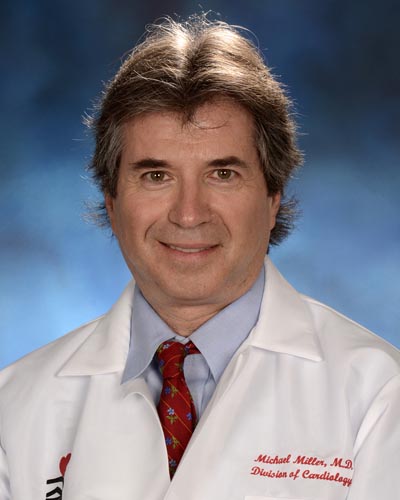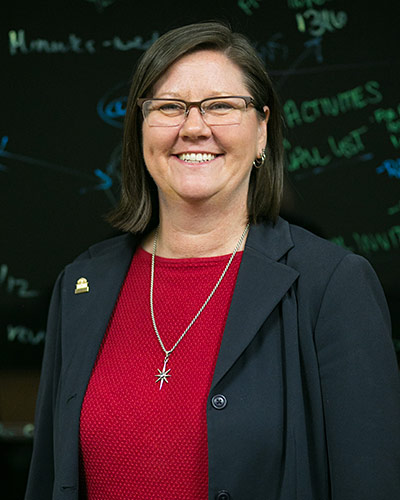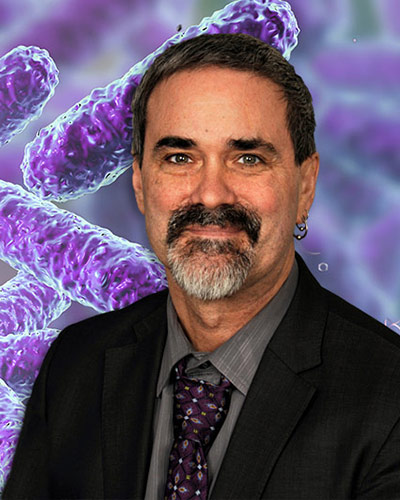January 23, 2018 | David Kohn

These Genes Could Serve as Potential Targets to Reduce Cardiovascular Risk
Researchers at the University of Maryland School of Medicine (UMSOM) have uncovered genetic mutations that may explain why people with high levels of high-density lipoprotein (HDL) cholesterol, the “good cholesterol,” have a reduced risk of coronary heart disease.
High HDL levels are associated with longevity in families, suggesting the possibility of a genetic connection. HDL also has antioxidant and anti-inflammatory properties that may contribute to heart protection.
To home in on the genetic connection, the researchers examined large-scale heart disease databases and focused on patients who had been screened with an extensive genetic test.
The researchers say their findings, published in the Journal of Clinical Lipidology, could open the door to new ways to reduce cardiovascular risk.
“We tried to identify novel genes associated with very high HDL, found about a hundred genes that could have fit the pattern, then eliminated most of them because they were also found in people with low HDL,” says the study’s senior author, Michael Miller, MD, professor of cardiovascular medicine, epidemiology & public health at UMSOM, and director of the Center for Preventive Cardiology, University of Maryland Medical Center. “Ultimately, we found eight genes that may somehow protect the heart, even though seven of them have not been specifically linked to HDL metabolism.”
HDL levels are expressed in milligrams per deciliter (mg/dL) of blood. The typical number is 45 for men, and 55 for women. This study looked at people with HDL levels of 80 mg/dL or higher, including well over 100. Extremely high HDL is known as hyperalphalipoproteinemia (HALP).
In some cases, the cardioprotective effect associated with HALP was unexpected. “We were surprised to find that some of the high HDL patients who were smokers, had high blood pressure and were older, in their 70s or 80s, had not experienced a coronary event such as a heart attack,”says Dr. Miller.
The researchers drew from six different sources where a genetic screening technique called whole exome sequencing (WES) was used to identify genetic variations. The sources included the University of Maryland Preventive Cardiology clinic, the Cardiovascular Health Study (CHS), Jackson Heart Study (JHS), Multi-Ethnic Study of Atherosclerosis (MESA), the Framingham Heart Study (FHS) and the Old Order Amish population of Lancaster, Pa. Of 1,645 subjects, researchers identified 72 with very high HDL.
Dr. Miller says there are challenges in working with HDL. “Think of HDL as a cargo ship that not only transports cholesterol for disposal (its most well-known function) but also contains at least 80 different proteins. The relationship between HDL and many of these proteins is not well understood,”he says.
“This study is an important first step toward understanding whether there is anything more to these genes,” says E. Albert Reece, MD, PhD, MBA, executive vice president for medical affairs at the University of Maryland, the John Z. and Akiko K. Bowers Distinguished Professor and dean of UMSOM. “For example, these genes may affect lipid metabolism in ways that have not been understood previously. A related question is whether an effect on lipid metabolism also implies changes in the risk of heart disease.”
The study was supported by grants from the National Institutes of Health.
Oates CP, Koenig D, Rhyne J, Bogush N, O’Connell J, Mitchell BD, Miller M. “Novel polymorphisms associated with hyperalphalipoproteinemia and apparent cardioprotection.” Journal of Clinical Lipidology (2017). https://doi.org/10.1016/j.jacl.2017.10.021
About the University of Maryland School of Medicine
Commemorating its 210th Anniversary, the University of Maryland School of Medicine was chartered in 1807 as the first public medical school in the United States. It continues today as one of the fastest growing, top-tier biomedical research enterprises in the world -- with 43 academic departments, centers, institutes, and programs; and a faculty of more than 3,000 physicians, scientists, and allied health professionals, including members of the National Academy of Sciences, and a distinguished recipient of the Albert E. Lasker Award in Medical Research. With an operating budget of more than $1 billion, the School of Medicine works closely in partnership with the University of Maryland Medical Center and Medical System to provide research-intensive, academic and clinically-based care for more than 1.2 million patients each year. The School has over 2,500 students, residents, and fellows, and nearly $450 million in extramural funding, with more than half of its academic departments ranked in the top 20 among all public medical schools in the nation in research funding. As one of the seven professional schools that make up the University of Maryland, Baltimore campus, the School of Medicine has a total workforce of nearly 7,000 individuals. The combined School and Medical System (“University of Maryland Medicine”) has a total budget of $5 billion and an economic impact of nearly $15 billion on the state and local community. The School of Medicine faculty, which ranks as the 8th-highest public medical school in research productivity, is an innovator in translational medicine with 600 active patents and 24 start-up companies. The School works locally, nationally, and globally, with research and treatment facilities in 36 countries around the world. Visit medschool.umaryland.edu/
About the University of Maryland Medical Center
The University of Maryland Medical Center (UMMC) is comprised of two hospitals in Baltimore: an 800-bed teaching hospital – the flagship institution of the 14-hospital University of Maryland Medical System (UMMS) – and a 200-bed community teaching hospital, UMMC Midtown Campus. UMMC is a national and regional referral center for trauma, cancer care, neurocare, cardiac care, diabetes and endocrinology, women’s and children’s health, and has one of the largest solid organ transplant programs in the country. All physicians on staff at the flagship hospital are faculty physicians of the University of Maryland School of Medicine. At UMMC Midtown Campus, faculty physicians work alongside community physicians to provide patients with the highest quality care. UMMC Midtown Campus was founded in 1881 and is located one mile away from the University Campus hospital. For more information, visit www.umm.edu.
Learn More
Contact
Office of Public Affairs
655 West Baltimore Street
Bressler Research Building 14-002
Baltimore, Maryland 21201-1559
Contact Media Relations
(410) 706-5260
Related stories

Friday, April 05, 2024
Researchers Identify New Genetic Risk Factors for Persistent HPV Infections
Human papillomavirus (HPV) is the second most common cancer-causing virus, accounting for 690,000 cervical and other cancers each year worldwide. While the immune system usually clears HPV infections, those that persist can lead to cancer, and a new finding suggests that certain women may have a genetic susceptibility for persistent or frequent HPV infections. These genetic variants, identified in a study led by University of Maryland School of Medicine researchers, could raise a woman’s risk of getting cervical cancer from a high-risk HPV infection.

Thursday, October 12, 2023
UM School of Medicine Researchers Provide First Statewide Prevalence Data on Two New Emerging Pathogens in Healthcare Settings
University of Maryland School of Medicine (UMSOM) researchers conducted a statewide survey of all patients on breathing machines in hospitals and long-term care facilities and found that a significant percentage of them harbored two pathogens known to be life-threatening in those with compromised immune systems. One pathogen, Acinetobacter baumannii, was identified in nearly 31 percent of all patients on ventilators to assist with their breathing; Candida auris was identified in nearly 7 percent of patients on ventilators, according to the study which was published today in the Journal of the American Medical Association.

Tuesday, November 01, 2022
Youngest Girls Who Get Pregnant Have Highest Risk of Poor Outcomes, Study Finds
Pregnant teens in the U.S. have long been known to face increased health risks and pregnancy complications, but a new study for the first time finds that girls ages 13 or younger who get pregnant face even greater risks. These very young girls are significantly more likely to experience preterm birth, cesarean delivery, and admission to the intensive care unit (ICU) compared to older pregnant teens. Researchers from the University of Maryland School of Medicine (UMSOM) and the University of Pennsylvania Perelman School of Medicine led the study, which was published today in the Journal of the American Medical Association (JAMA).

Tuesday, May 31, 2022
Most Doctors Still Believe in Prescribing Unnecessary Antibiotics to Treat Asymptomatic Infections, UM School of Medicine Study Suggests
An estimated 70 percent of primary care physicians reported in a survey that they would still prescribe antibiotics to treat asymptomatic infections based solely on a positive urine specimen. This is despite long-held medical guidelines recommending against this practice, according to a new study published in JAMA Network Open, which was led by University of Maryland School of Medicine (UMSOM) researchers.

Wednesday, June 09, 2021
Global Study of Microbes in 60 Cities Finds Each Has Unique Fingerprint of Viruses and Bacteria
Each city has its own unique microbiome, a “fingerprint” of viruses and bacteria that serves as type of city profile, according to a new study from an international consortium of researchers that included a team from the University of Maryland School of Medicine (UMSOM). The international project, which sequenced and analyzed samples collected from public transit systems and hospitals in 60 cities around the world, was published today in the journal Cell.

Tuesday, May 11, 2021
New Study Suggests Pregnant Women Hospitalized for Covid-19 Infection Do Not Face Increased Risk of Death
Pregnant women who develop severe COVID-19 infections that require hospitalization for pneumonia and other complications may not be more likely to die from these infections than non-pregnant women. In fact, they may have significantly lower death rates than their non-pregnant counterparts. That is the finding of a new study published today in the Annals of Internal Medicine conducted by researchers at the University of Maryland School of Medicine (UMSOM).

Thursday, June 13, 2019
UM School of Medicine's J. Kathleen Tracy, PhD, is Named 2019-20 Fellow by the American Council on Education
The American Council on Education (ACE) has announced that J. Kathleen Tracy, PhD, Associate Professor of Epidemiology & Public Health at the University of Maryland School of Medicine (UMSOM), has been named an ACE Fellow for academic year 2019-20. Following nomination by the senior administration of their institutions and a rigorous application process, 39 Fellows were selected this year.

Wednesday, May 29, 2019
The Human Microbiome Project expands the toolbox for studying host and microbiome interactions
New studies provide a framework for future studies of the role of the microbiome in health and disease.

Monday, June 20, 2016
Muffins Made With Healthy Fats May Help Patients With Metabolic Syndrome
It's hard to think of the typical muffin, often loaded with saturated fat and a high calorie count, as a healthy food option. But muffins made with healthier fats yielded unexpected health benefits during a first-of-its-kind clinical study at the University of Maryland School of Medicine.
